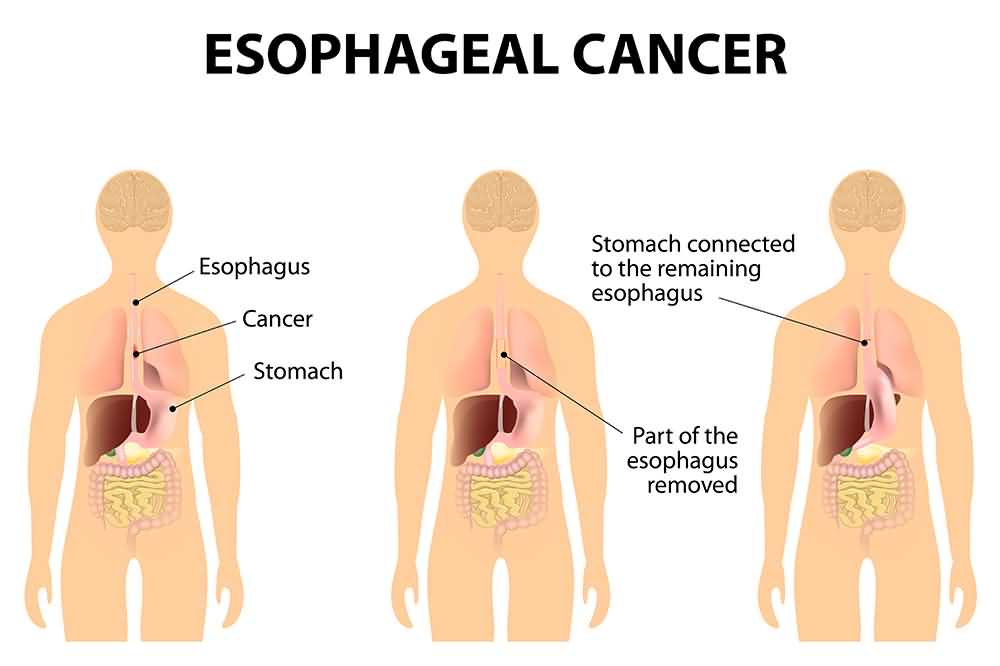Esophageal Cancer Surgery in Pakistan
Search and Compare the Best Clinics and Doctors at the Lowest Prices for Esophageal Cancer Surgery in Pakistan

Find the best clinics for Esophageal Cancer Surgery in Pakistan
No clinics available
India offers the best prices Worldwide
Price: $ 4,140

- Home
- Pakistan
WHY US?
At Medijump, we're making medical easy. You can search, compare, discuss, and book your medical all in one place. We open the door to the best medical providers worldwide, saving you time and energy along the way, and it's all for FREE, no hidden fees, and no price markups guaranteed. So what are you waiting for?

Free

Best Price

Widest Selection

Risk-Free
What you need to know about Esophageal Cancer Surgery in Pakistan

Esophageal cancer occurs anywhere along the esophagus (the long and hollow tube that runs from the throat to the stomach). Surgery for esophageal cancer is often used to try to remove cancer and some of the normal tissue that surrounds it for some earlier stage cancers. In some cases, the surgery may be combined with other types of treatment, such as radiation therapy and/or chemotherapy.
What does a Esophageal Cancer Surgery Procedure Involve?
Esophageal cancer surgery is performed under general anesthesia. The surgery is done using the standard open technique in which your surgeon makes one large incision in the chest or abdomen, or minimally invasive where your surgeon makes several small incisions. During the surgery, your surgeon will try to remove the tumor and some healthy tissue that surrounds it or removes some or most of the esophagus (esophagectomy). In some cases, a small upper portion of your stomach is removed as well (esophagogastrectomy).
How Long Should I Stay in Pakistan for a Esophageal Cancer Surgery Procedure?
You will be staying 7 to 10 days in the hospital following the surgery, but plan to stay in Pakistan for 10 to 14 more days after you are discharged from the hospital. During your stay in the country, you will be under a close monitor of your surgeon. Stitches are usually removed within 14 days.
What's the Recovery Time for Esophageal Cancer Surgery Procedures in Pakistan?
Esophageal cancer surgery is not a simple procedure, therefore, it may require long recovery time. You should not do any strenuous activity (including intense exercise and heavy lifting) for about 8 weeks after the surgery and you will need tube feeding (enteral nutrition) for 4 to 6 weeks to ensure adequate nutrition. Talk to your doctor about your recovery timeline, including when you can return to work and resume your daily activities.
What sort of Aftercare is Required for Esophageal Cancer Surgery Procedures in Pakistan?
Since your stomach size is likely reduced after the surgery, you need to adjust your diet and eat more frequently in smaller quantities. Your doctor may recommend follow-up care to prevent complications, including lung therapy, nutritional assessments, pain management, and psychosocial care. You also need to attend regular follow-up checkups to make sure the tumor has not returned and there are no new tumor growths.
What's the Success Rate of Esophageal Cancer Surgery Procedures in Pakistan?
Surgery for esophageal cancer is known to be highly successful. Patients who undergo surgery are more likely to survive long term than those who did not. However, like all serious operations, esophageal cancer surgery has some side effects and risks, including lung complications, voice changes, infection, bleeding, cough, leakage from the surgical connection of the stomach and the esophagus, acid or bile reflux, dysphagia, and reaction to anesthesia.
Are there Alternatives to Esophageal Cancer Surgery Procedures in Pakistan?
In some cases, your doctor may recommend chemotherapy (to kill cancer cells using drugs) or radiation therapy (to kill cancer cells using high-powered X-ray beams) along with or instead of surgery. Make sure to discuss with your doctor, the best option for you as well as the risk and benefit of each procedure.
What Should You Expect Before and After the Procedure
Esophageal cancer causes symptoms such as dysphagia, unintentional weight loss, chest pain, heartburn, coughing, and hoarseness. It may interfere with your ability to perform your daily activities and it can lead to dangerous complications. After the surgery, some of your symptoms should be relieved and your quality of life will be improved significantly.
Whilst the information presented here has been accurately sourced and verified by a medical professional for its accuracy, it is still advised to consult with your doctor before pursuing a medical treatment at one of the listed medical providers
No Time?
Tell us what you're looking for and we'll reachout to the top clinics all at once
Enquire Now

Popular Procedures in Pakistan
Prices Start From $131

Prices Start From $47

Recommended Medical Centers in Pakistan for procedures similar to Esophageal Cancer Surgery

- Interpreter services
- Translation service
- Religious facilities
- Medical records transfer
- Medical travel insurance
- Health insurance coordination
- TV in the room
- Safe in the room
- Phone in the room
- Private rooms for patients available

- Interpreter services
- Translation service
- Religious facilities
- Medical records transfer
- Medical travel insurance
- Health insurance coordination
- TV in the room
- Safe in the room
- Phone in the room
- Private rooms for patients available

- Interpreter services
- Translation service
- Religious facilities
- Medical records transfer
- Medical travel insurance
- Health insurance coordination
- TV in the room
- Safe in the room
- Phone in the room
- Private rooms for patients available

- Interpreter services
- Translation service
- Religious facilities
- Medical records transfer
- Medical travel insurance
- Health insurance coordination
- TV in the room
- Safe in the room
- Phone in the room
- Private rooms for patients available

- Interpreter services
- Translation service
- Religious facilities
- Medical records transfer
- Medical travel insurance
- Health insurance coordination
- TV in the room
- Safe in the room
- Phone in the room
- Private rooms for patients available

- Interpreter services
- Translation service
- Religious facilities
- Medical records transfer
- Medical travel insurance
- Health insurance coordination
- TV in the room
- Safe in the room
- Phone in the room
- Private rooms for patients available

- Interpreter services
- Translation service
- Religious facilities
- Medical records transfer
- Medical travel insurance
- Health insurance coordination
- TV in the room
- Safe in the room
- Phone in the room
- Private rooms for patients available

- Interpreter services
- Translation service
- Religious facilities
- Medical records transfer
- Medical travel insurance
- Health insurance coordination
- TV in the room
- Safe in the room
- Phone in the room
- Private rooms for patients available

- Interpreter services
- Translation service
- Religious facilities
- Medical records transfer
- Medical travel insurance
- Health insurance coordination
- TV in the room
- Safe in the room
- Phone in the room
- Private rooms for patients available

- Interpreter services
- Translation service
- Religious facilities
- Medical records transfer
- Medical travel insurance
- Health insurance coordination
- TV in the room
- Safe in the room
- Phone in the room
- Private rooms for patients available
Esophageal Cancer Surgery in and around Pakistan
Introduction
The Islamic Republic of Pakistan is a country located in South Asia and it is the fifth-most populous country of the world, with a population exceeding 207.8 million. Although the country has plenty of natural and historical riches, this country is off the radar for most tourists due to political instability. Those who are curious enough to visit the country will find that it is filled with beautiful, from Mughals and mountains to the mighty Karakoram.
A large number of ultra-modern medical centers are available, and they are equipped and facilitated with the most advanced medical technologies. Numerous doctors and surgeons at these medical centers are normally foreign qualified. Large numbers of patients from neighboring countries and the Middle East have traveled to Pakistan to undergo various medical procedures, mainly for organ transplants or fertility treatments.
Popular Cities and Regions in Pakistan
The capital city of Pakistan is Islamabad. This city was built as a planned city to replace Karachi as the country’s capital. Islamabad is known for its safety, high standards of living, and plenty of green spaces. Here, tourists can admire the symmetry of the Pakistan Monument, check out the Daman-e-Koh viewpoint, visit the Lok Virsa Museum, and stroll around the Faisal Mosque. Karachi, the original capital of the country, is a sprawling metropolis. Most visitors usually come to check out the Quaid Mausoleum and the Tuba Mosque. Another popular city for tourism in Lahore, which is filled with beautiful architecture and interesting museums. The most popular attractions in this city are the Badshahi Mosque, the Lahore Fort, the Sheesh Mahal, and the Delhi Gate.
Transport in Pakistan
The busiest airport in Pakistan is the Jinnah International Airport, which is located in Karachi. It serves both domestic and international flights to and from several cities in Europe, Asia, and the Middle East. Taking domestic flights can be a great way to travel around. The rail network is also extensive and comfortable. Taxis and Uber are also available.
Visas in Pakistan
Citizens of 5 countries, including Maldives, Nepal, Samoa, Tonga, and Trinidad and Tobago, can visit Pakistan without a visa. Several countries, such as Austria and the UAE, may obtain a visa on arrival if they possess ETA. Citizens of 15 countries, including Armenia and India, are eligible to apply for an online visa.
Weather in Pakistan
Summer (March – October) is hot and dry in the northern regions. However, July and August can be rainy, making the weather hot and humid. The temperatures can range from 9°C to 38°C. Winter (November – April) can be really severe and most cities will get frost. Also, the northern part of the country experiences heavy rainfall during this season. The average temperature ranges from 3°C to 25°C.
Additional Info
- Local Currency: The official currency is the Pakistani rupee (PKR). 1 USD will get you approx. 154.4 PKR.
- Money & Payments: ATMs are readily available. Pakistan is a cash-based society, and credit cards are only accepted in a few establishments. Tipping is not expected.
- Local Language: The official language is Urdu and English. Punjabi, Pashto, Sindhi, Saraiki, and Balochi are also spoken by a number of people.
- Local Culture and Religion: Islam is practiced by more than 90% of the population. Hinduism, Christianity, Ahmadis, Sikhism, and other religions are also practiced. Always avoid wearing body-revealing clothes in public places.
- Public holidays: Some of the most celebrated holidays are Holi, Pakistan Day, Eid ul-Fitr, and Eid ul-Azha.
Popular Searches
- Plastic Surgery in Thailand
- Dental Implants in Thailand
- Hair Transplant in Thailand
- Breast Augmentation Thailand
- Gastric Sleeve in Thailand
- Gender Reassignment Surgery in Thailand
- Laser Hair Removal in Bangkok
- Botox in Bangkok
- Dermatology in Bangkok
- Breast Augmentation in Bangkok
- Coolsculpting in Bangkok
- Veneers in Turkey
- Hair Transplant in Turkey
- Rhinoplasty in Turkey
- Stem Cell Therapy in Mexico
- Rhinoplasty in Mexico
- Liposuction in Mexico
- Coolsculpting in Tijuana
- Rhinoplasty in Korea
- Scar Removal in Korea
- Gastric Sleeve in Turkey
- Bone Marrow Transplant in India
- Invisalign in Malaysia
- Plastic Surgery in the Dominican Republic
- Tummy Tuck in the Dominican Republic
- Plastic and Cosmetic Surgery in Poland
- Rhinoplasty in Poland
- Hair Implant in Poland
- Dental Implants in Poland
- IVF in Turkey